Is stability in Bangladesh possible without embracing pluralism?

A key dividing factor in South Asian politics lies in the tension between secularism and religion-driven ideologies. This is not an isolated phenomenon as the global rise of far-right politics continues to patronise sociopolitical and cultural divides. Theoretically, any sovereign South Asian nation, including Bangladesh, can choose to separate state from religion or place religion at the centre of governance. However, from a pragmatic perspective, prioritising religious sentiments to (re)define culture or politics or claiming that a particular religious belief is fundamental to state (re)formation is a high-risk strategy. Such approaches, which seek to shape a state based on religious sentiment, can create and perpetuate tensions and conflicts within society, especially in the context of today's increasingly diverse, plural and multicultural South Asian societies impacted by globalisation.
Amartya Sen and Martha Nussbaum have made insightful observations in their respective books Identity & Violence: The Illusion of Destiny (2006) and The Clash Within: Democracy, Religious Violence, and India's Future (2007) on how democracy and religious beliefs can be in a conflictual relationship with each other if not carefully discussed or nurtured by the state and the polity. They discuss the risks that nations like India face when they fail either to embrace sociocultural plurality or resist communal violence, thus impeding national progress. The hope that both Sen and Nussbaum have for South Asia in general, and specifically for India, is that public discourse and cultural and historical tolerance for secular ideals, despite various religious sentiments that are dominant in the country, can allow for the emergence and sustenance of a robust democratic culture that embraces pluralism in every possible way.
This is crucial because if we look at two major countries in the Middle East—Israel and Iran—it appears that both often impose their religious narratives on the public to sustain internal populist support. This has not brought peace or stability to either country. On the one hand, Israel, despite thriving militarily with the unconditional support of the US and its allies, is in endless conflict with its neighbours. On the other hand, Iran, under heavy Western sanctions, has a crippled economy. It also has an aggrieved population that does not necessarily support the current regime. Its citizens do not actually like the way they live their lives and would like to exercise their democratic rights instead.
We also have the more extreme example of Iraq. When the US invaded Iraq in 2003, some might have hoped that the US military would topple a dictator and rebuild the country with democratic ideals. However, over the past 20 years, Iraq has not recovered from the legacies of the US-led invasion. Instead, it has become a place where extremist groups have emerged and flourished, jeopardising basic hopes and desires of the ordinary people. No one knows when or if the country will ever return to normality.
In Bangladesh, simply by observing social media posts and debates since August 5, it is clear that despite the deep desire of most ordinary people for freedom and equality, the country is witnessing a barrage of insensitive rhetoric. One group is jubilant, believing that it has the authority to spread hate and incite violence, while the other is in deep shock, fearful that their freedoms are being curtailed by political threats, mob violence and acts of revenge. Even teachers, academics and artists have not been spared, facing hostility and abuse on multiple fronts. The rise in the number of dubious court cases against some journalists, intellectuals and others is also alarming, alongside the clashes between law enforcement agencies and garment workers.
We cannot assume that things will improve on their own, or that it is acceptable to turn a blind eye to issues that could affect the country's long-term stability. My study on insensitive violence has made it clear that once a cycle of violence begins, it perpetuates in different forms and does not stop unless major interventions in the spheres of state and politics are made.
Following this, I argue that to ensure its long-term stability, what Bangladesh currently needs is pluralism as opposed to any one particular ideology or belief system. This is because only pluralism allows societies like ours to accommodate multiple ideas, religions, ideologies, and identities. In a society that celebrates pluralism, different actors and ideas can intersect to find common grounds to develop a just state. It might not be perfect, but it can serve all types of people with different beliefs in an adequate manner.
However, such a state cannot be built on the doctrines of countries like Israel or Iran, nor can it dismiss the importance of diverse worldviews. It also cannot be achieved through ambiguities in political and statist views, such as claiming that we want religious dominance while operating under Western-style democracy. Mixing such competing ideologies would create instability and chaos. Instead, a coherent vision of pluralism, rooted in tolerance and reasoned debate, is necessary to improve the quality of life for all.
If we agree on pluralistic political and social ideals, we must then reject both ambiguous and opportunistic political views and extremist positions in the name of reform. Otherwise, Bangladesh risks trapping itself in isolationist ideas. For example, populist approaches, such as opposing India based on communal sentiment rather than addressing Indian political and corporate dominance, or borrowing from the World Bank or the International Monetary Fund (IMF) without considering the long-term impact on ordinary citizens, will impede the real progress of Bangladesh. We must also recognise the need to reduce Western geopolitical dominance, which can only be done through collective political consensus. Again, such consensus can only be achieved when we adopt pluralistic values as our common political language and attendant activities.
As the world contends with competing national interests, hyperconnectivity and the rise of artificial intelligence, it is shortsighted to remain stuck in debates about whether a country should be run by narrow identity politics or by triggering political ambiguity or impractical ideas so as to seize power. We can take pride in the fact that, historically, Bangladesh has been built on pluralistic ideals born out of the Language Movement of 1952 and the Liberation War of 1971. We cannot afford to be hesitant to honour the pluralistic spirit and the dignity of the lives either lost or shattered during 1952 and 1971, which paved the way for our hard-earned freedom on December 16, 1971.
It is a sharp reminder that while the West, especially the US and the UK, exerts considerable influence over geopolitical issues in the Global South, these nations have managed to cultivate relatively successful pluralistic societies, build a highly skilled workforce, and lead the world in technological advancements. In the 21st century, Bangladesh should think forward, not backward, to resolve issues like gender inclusivity and the right of intellectuals to criticise authorities, while avoiding the use of narrow identity politics for political ambitions and gains. In sum, Bangladesh cannot risk becoming isolated from the global pluralistic debate. Such an isolation would only result in increased injustice and geopolitical domination, either from its neighbours or the West.
Dr Rashedur Chowdhury is professor of business and management at Essex University. He can be reached at [email protected].
Views expressed in this article are the author's own.
Follow The Daily Star Opinion on Facebook for the latest opinions, commentaries and analyses by experts and professionals. To contribute your article or letter to The Daily Star Opinion, see our guidelines for submission.
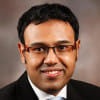
 For all latest news, follow The Daily Star's Google News channel.
For all latest news, follow The Daily Star's Google News channel. 

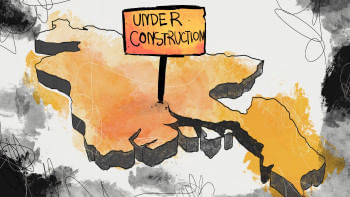
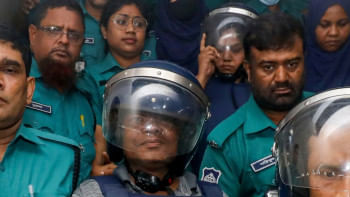


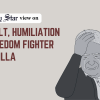
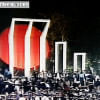
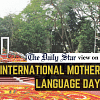



Comments